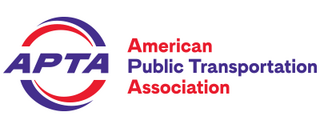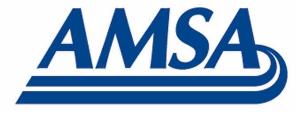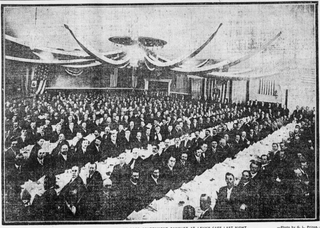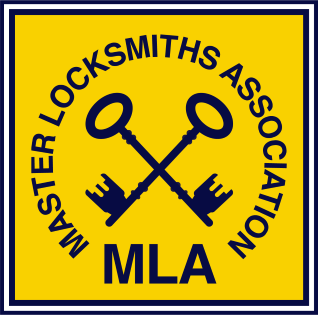Related Research Articles
Professional certification, trade certification, or professional designation, often called simply certification or qualification, is a designation earned by a person to assure qualification to perform a job or task. Not all certifications that use post-nominal letters are an acknowledgement of educational achievement, or an agency appointed to safeguard the public interest.

A nonprofit organization (NPO), also known as a nonbusiness entity, nonprofit institution, or simply a nonprofit, is a legal entity organized and operated for a collective, public or social benefit, as opposed to an entity that operates as a business aiming to generate a profit for its owners. A nonprofit organization is subject to the non-distribution constraint: any revenues that exceed expenses must be committed to the organization's purpose, not taken by private parties. Depending on the local laws, charities are regularly organized as non-profits. A host of organizations may be nonprofit, including some political organizations, schools, hospitals, business associations, churches, foundations, social clubs, and consumer cooperatives. Nonprofit entities may seek approval from governments to be tax-exempt, and some may also qualify to receive tax-deductible contributions, but an entity may incorporate as a nonprofit entity without having tax-exempt status.

A stockbroker is an individual or company that buys and sells stocks and other investments for a financial market participant in return for a commission, markup, or fee. In most countries they are regulated as a broker or broker-dealer and may need to hold a relevant license and may be a member of a stock exchange. They generally act as a financial advisor and investment manager. In this case they may also be licensed as a financial adviser such as a registered investment adviser.

The Canadian Federation of Engineering Students (CFES) (Fédération canadienne étudiante de génie in French) is the national association of undergraduate engineering student societies in Canada and exists to organize activities, provide services and interact with professional and other bodies at the national and international level for the benefit of Canadian engineering students. The organization is a bilingual non-profit corporation based in Ottawa, Ontario, Canada, managed by a volunteer team of engineering students and recent graduates from across Canada.
A trade association, also known as an industry trade group, business association, sector association or industry body, is an organization founded and funded by businesses that operate in a specific industry. Through collaboration between companies within a sector, a trade association participates in public relations activities such as advertising, education, publishing and, especially, lobbying and political action. Associations may offer other services, such as producing conferences, setting industry standards, holding networking or charitable events, or offering classes or educational materials. Many associations are non-profit organizations governed by bylaws and directed by officers who are also members.. Many associations are non-profit organizations governed by bylaws and directed by officers who are also members..

The Canadian Securities Institute is a Canadian organization that offers licensing courses, advanced certifications, continuing education and custom training for financial services professionals in Canada and internationally.

The American Public Transportation Association (APTA) is a nonprofit group of approximately 1,500 public and private sector member organizations that promotes and advocates for the interests of the public transportation industry in the United States.
A social enterprise is an organization that applies commercial strategies to maximize improvements in financial, social and environmental well-being. This may include maximizing social impact alongside profits for co-owners.
The Master of Health Administration, Master of Healthcare Administration (MHA), or Master of Health Management (MHM), is a master's-level professional degree granted to students who complete a course of study in the knowledge and competencies needed for careers in health administration, involving the management of hospitals and other health services organizations, as well as public health infrastructure and consulting. Programs can differ according to setting; although practitioner-teacher model programs are typically found in colleges of medicine, health professions, or allied health, classroom-based programs can be found in colleges of business or public health.
Laws regulating nonprofit organizations, nonprofit corporations, non-governmental organizations, and voluntary associations vary in different jurisdictions. They all play a critical role in addressing social, economic, and environmental issues. These organizations operate under specific legal frameworks that are regulated by the respective jurisdictions in which they operate.
The Toronto Region Board of Trade is the principal local business community organization in the City of Toronto. It is the largest Chamber of Commerce/board of trade in Canada and one of the largest in North America. Its primary contemporary focus is to advocate for policy change that drives the growth and competitiveness of the Toronto region on members' behalf. Its stated objective is to make the Toronto region one of the most competitive and sought-after business regions in the world. It offers business services, educational programing, facilities, and events to its members, and policy advices and analysis to the governments of the City of Toronto, the Province of Ontario, and Canada, and various public organizations and agencies. It develops and promotes policies and programs under the key strategic pillars of trade, transportation and talent. It operates at its office in First Canadian Place in Toronto's financial district.
A mutual-benefit nonprofit corporation or membership corporation is a type of nonprofit corporation in the US, similar to other mutual benefit organizations found in some of common law nations, chartered by government with a mandate to serve the mutual benefit of its members.

The American Moving & Storage Association (AMSA) was the non-profit trade association representing members of the professional moving industry based primarily in the United States. Its approximately 4,000 members consisted of van lines, their agents, independent movers, forwarders, industry suppliers, and certain individuals and organizations.

The United States has a history of citizen, nonprofit, and other non-partisan groups advocating good government that reaches back to the late-19th-century municipal-level Progressive Movement and the development of governmental professional associations in the early part of the 20th century, such as the American Public Human Services Association and the International City/County Management Association. Many of these groups had their genesis at the Public Administration Center at 1313 East 60th Street, at the University of Chicago.

The Credit Institute of Canada (CIC) is a not-for-profit organization created by a special Act of Parliament on June 11, 1928. The CIC provides credit management resources, education and certification to its members and is the only organization that grants official designations to professionals in the Canadian credit management field.

Master Locksmiths Association (MLA) is a not for profit trade association representing locksmiths in the United Kingdom. It operates a certification program and a referral program to direct consumers to its certified locksmiths. It was established in 1958 and has about 1,400 members.
The Association of Performing Arts Professionals, based in Washington, D.C., is the United States national service, advocacy and membership organization for the performing arts presenting sector and the convener of an annual convention every January in New York City.
The Insurance Institute of Canada is a not-for-profit organization which provides nationally standardized professional development programs for the insurance industry in Canada. Founded in 1952 and headquartered in Toronto, the IIC is an umbrella organization of 19 provincial and regional chapters across Canada.

Chartered Professional Accountants of Canada is the national organization representing the Canadian accounting profession through the unification of the three largest accounting organizations: the Canadian Institute of Chartered Accountants (CICA), the Society of Management Accountants of Canada and Certified General Accountants of Canada (CGA-Canada), as well as the 40 national and provincial accounting bodies. It is one of the largest organizations of its type in the world, with over 217,000 Chartered Professional Accountants in Canada and around the world.
References
- ↑ "Record Details". fourinfo.cioc.ca.
- ↑ "CSAE | SCDA Canadian Society of Association Executives Home". www.csae.com.
- ↑ "Sustainability Network".
- ↑ "Professional Association Management Services". Archived from the original on July 19, 2008.